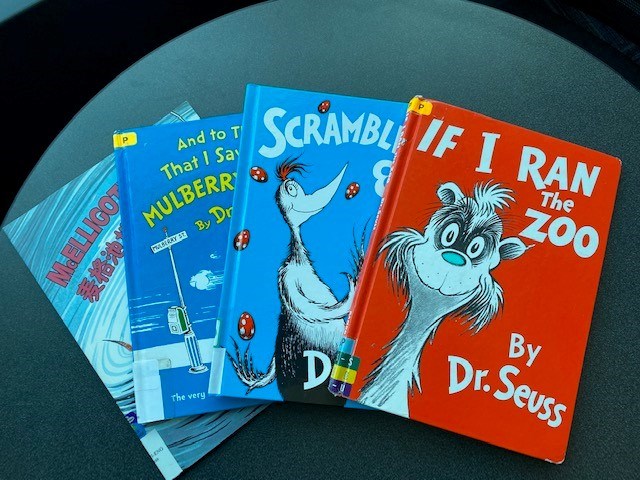Newmarket Public Library is unlikely to remove the six discontinued Dr. Seuss books from circulation following Dr. Seuss Enterprises' controversial decision to stop publishing them early this month, the acting CEO says.
The Dr. Seuss books, including And to Think That I Saw It on Mulberry Street and If I Ran the Zoo, will stop being published because of racist and insensitive imagery, the business that preserves and protects the author's legacy said earlier this month.
“These books portray people in ways that are hurtful and wrong,” Dr. Seuss Enterprises said.
The Newmarket library has multiple copies of all three books in its collection, some of which are currently checked out or even have holds placed. Acting library CEO Linda Peppiatt told Newmarket Today that library staff have not met to discuss how best to respond to the controversy.
"We haven't developed a hard-fast plan for the situation. The children's library staff are still considering it. At this point, the books are still available," said Peppiatt.
The public library in Barrie chose to pull the books from its shelves because they contain specific illustrations with stereotypical caricatures of different ethnic groups, particularly Asian and Inuit.
The Newmarket library is considering a couple of options, Peppiatt said. One of these would be to move the books to the "parenting" section of the children's library, which contains books meant for parents, some on sensitive and controversial topics.
"They are books about how to raise your children and touch on sensitive issues, such as divorce, that children would be sensitive to and parents might not be ready to discuss if a child just pulled the book off the shelves," she said.
Peppiatt said the library is sensitive to the fact that the illustrations in the books will offend some readers. But the decision on what action to take, if any at all, will be governed by the library's collection development policy, which explicitly endorses the Canadian Library Association's statement on intellectual freedom.
"Libraries have a core responsibility to safeguard and facilitate access to constitutionally protected expressions of knowledge, imagination, ideas, and opinion, including those which some individuals and groups consider unconventional, unpopular or unacceptable," reads that statement.
During his long and distinguished career as an illustrator, Theodore Seuss Giesel, produced some pictures that have not aged well by contemporary standards.
During the Second World War, Suess worked as a political cartoonist and regularly drew about the war. One particularly infamous cartoon outright accused Japanese Americans of being a fifth column in league with the Japanese Empire. Concerns such as these were widely held, and led to the Japanese internment camps in the United States and Canada.
At the same time, however, Seuss was one of a few people with a platform highlighting the crimes of the holocaust in Nazi Germany, and identifying racial prejudice as something most people struggle with even if they didn't realize it.

